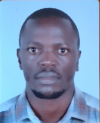Adeodata Rukyalekere Kekitiinwa
ID: UNCST-2019-R000799
|
Novel and Optimized Diagnostics in Pediatric Tuberculosis in Kampala, Uganda(NOD)
REFNo: HS1341ES
The study has the following objectives:
Objective 1: Evaluate and develop novel assays that diagnose TB by detecting Mycobacterium tuberculosis (MTB) bacterial products in non-sputum body fluids. Objective 2: Evaluate and develop novel assays that diagnose TB by detecting host biomarkers in non-sputum body fluids.
Objective 3: Identify combinations of assays that applied together could be used to diagnose TB among children with unconfirmed.
|
Uganda |
2021-05-18 |
2024-05-18 |
Medical and Health Sciences |
Non-Clinical Trial |
Non-degree Award |

|
Edith Wakida K
ID: UNCST-2019-R001225
|
Impact and process Evaluation of the Health-Professional Education Partnership Initiative – Transforming Ugandan Institutions Training Against HIV/AIDS
REFNo: HS1351ES
1. To evaluate the acceptability, appropriateness, feasibility, and implementation process of the HIV curriculum
2. To evaluate the acceptability, appropriateness, feasibility, and implementation process of building capacity of primary health care (PHC) providers to provide comprehensive HIV services and strengthen bidirectional linkages between health facilities and communities
3. To evaluate the acceptability, appropriateness, feasibility, and implementation process of the micro-research program
|
Uganda |
2021-05-18 |
2024-05-18 |
Medical and Health Sciences |
Non-Clinical Trial |
Non-degree Award |

|
Pontiano Kaleebu
ID: UNCST-2021-R013577
|
A phase I study to determine the safety and immunogenicity of the candidate Rift Valley Fever Virus (RVFV) vaccine ChAdOx1 RVF among healthy adult volunteers in Uganda.
REFNo: HS793ES
The primary objective of this study is to assess the safety profile of the candidate vaccine ChAdOx1 RVF in healthy adult volunteers in Uganda. This will be assessed through comparing the frequency of solicited, unsolicited and serious adverse events and changes from the baseline of laboratory safety measures between participants who will receive the active vaccine and those who will receive the placebo.
The Secondary objective is to assess the immunogenicity of the candidate vaccine ChAdOx1 RVF in healthy adult volunteers in Uganda. This will be assessed through quantification of antibodies to the GnGc proteins using ELISA, RVFV neutralising antibody titres and Ex vivo ELISpot and flow cytometry responses to GnGc.
|
Uganda |
2021-05-17 |
2024-05-17 |
Medical and Health Sciences |
|
Non-degree Award |

|
Allen Kabagenyi
ID:
|
Impoverishing and Catastrophic health expenditure on cancer care among persons affected by cancer in Uganda
REFNo: SS851ES
1. To determine the out of pocket expenditure associated with cancer care for persons affected by cancer, by type and stage;
2. To determine the proportion of cancer patients and or their families that experience catastrophic or impoverishing expenditure due to cancer related expenses by cancer type and stage;
3.To characterize the socio-economic interruptions experienced by persons affected by cancer in Uganda.
4.To examine the sociodemographic characteristics associated with cancer care burden in Uganda
5.To assess patients and care givers perceptions and attitudes of cancer care expenditures and health care in Uganda
|
Uganda |
2021-05-17 |
2024-05-17 |
Social Science and Humanities |
Non-Clinical Trial |
Non-degree Award |

|
Julia Dickson-Gomez
ID: UNCST-2019-R000775
|
Integration of buprenorphine into a multi-component harm reduction program for people who inject drugs in
Kampala, Uganda
REFNo: HS1229ES
To develop a combination HIV prevention intervention for PWID in Kampala Uganda, using the Consolidated Framework for Intervention Research. The combination intervention includes social network HIV/HCV testing, linkage to care for PWID and PrEP for HIV negative PWID. All participants will be offered safe injection equipment, condoms and HIV risk reduction education, and naloxone, buprenorphine, and CBT4CBT for heroin users.
2. To refine the intervention iteratively through implementation cycles using the CFIR framework to identify barriers and find solutions to implementation and scale-up.
3. To assess feasibility, acceptability and initial promise of the intervention with a 6-month pilot test.
|
USA |
2021-05-10 |
2024-05-10 |
Medical and Health Sciences |
|
Non-degree Award |

|
Erisa Mwaka Sabakaki
ID: UNCST-2019-R001625
|
Engaging Young People in the Development of Digital Mental Health Innovation in Africa
REFNo: SS795ES
To build a network of experts and stakeholders to develop a framework for responsible and relevant digital mental health interventions for young people in African countries
|
Uganda |
2021-05-10 |
2024-05-10 |
Social Science and Humanities |
Non-Clinical Trial |
Non-degree Award |

|
William Worodria Ofuti
ID: UNCST-2022-R010915
|
Management of Lower Respiratory Tract Infections in Sub-Saharan Africa, a Pragmatic Approach
REFNo: HS1160ES
Primary objective: To define aetiology and resistance patterns of clinically diagnosed CAP among hospitalized individuals using a comprehensive microbiological approach.
Secondary objectives:
1.To determine the level of agreement between molecular and conventional laboratory testing for the diagnosis of CAP.
2.To determine clinical predictors of treatment outcomes (early treatment failure, mortality) in patients hospitalized with CAP.
3.To determine the role of the CURB-65 severity score and biomarkers (CRP and PCT) in predicting treatment outcomes (early treatment failure, mortality) of patients hospitalized with CAP in a high HIV burden setting.
|
Uganda |
2021-05-07 |
2024-05-07 |
Medical and Health Sciences |
|
Non-degree Award |

|
Kenneth Mutesasira
ID:
|
Patient perspectives and reasons for interruption of TB treatment within central Uganda.
REFNo: HS1383ES
-The overall aim of the study is to understand patient reasons for treatment interruption to inform the interventions for improving TB patient retention and final treatment outcomes.
- The second objective is to explore patient's suggestions for improving their adherence throughout the course of treatment.
|
Uganda |
2021-05-07 |
2024-05-07 |
Medical and Health Sciences |
Non-Clinical Trial |
Non-degree Award |

|
Semitala Fred
ID: UNCST-2020-R014202
|
An assessment of current hypertension care (HTN) practices, routines, barriers, and facilitators for people living with HIV at selected health facilities in Kampala and Wakiso Districts in Uganda. A Formative Study
REFNo: SS808ES
Objective 1: To assess for knowledge, attitudes and practices of hypertension management and control.
Objective 2: To document existing guidelines and recommended routines for HTN-HIV integration in HIV clinics.Objective 3: To assess the current practice, routines, barriers and facilitators of HTN-HIV integration in HIV clinics.
Objective 4: To explore key stakeholders’ perspectives on HTN-HIV integration in HIV clinics in Kampala and Wakiso Districts.
|
Uganda |
2021-05-07 |
2024-05-07 |
Social Science and Humanities |
|
Non-degree Award |

|
James Nyonyintono Mwangwa
ID: UNCST-2023-R005636
|
Reporting neonatal demographics, clinical characteristics and outcomes using the deidentified Kiwoko Hospital newborn care unit database
REFNo: SS813ES
Aim 1- Describe demographics, clinical characteristics and outcomes of neonates
Aim 2- Describe mortality by birthweight and birth location
Aim 3- Evaluate the changes to growth and length of stay after introduction of cue-based feeding in 2019
Aim 4- Evaluate the short-term clinical correlates to a diagnosis of birth asphyxia
Aim 5- Determine if frequency of low birthweight admissions correlates to transmission of p. falciparum and decreased use of insecticide treated nets
|
Uganda |
2021-05-07 |
2024-05-07 |
Social Science and Humanities |
Non-Clinical Trial |
Non-degree Award |

|
Robert Kalyesubula
ID:
|
Task Shifting Screening and Measurement of Blood Pressure and Blood Sugars by Community Health Workers for Early Detection and Referral of Hypertension and Diabetes in Rural Uganda.
REFNo: SS821ES
1. To train CHWs in detection, referral, and promotion of continuity for diabetes and
hypertension care among community members in Nakaseke district, Uganda.
2. To assess the ability of trained CHWs to detect and refer patients with diabetes and or hypertension in Nakaseke district.
3. To determine compliance to diabetes and hypertension referral care among community
members in Nakaseke district
|
Uganda |
2021-05-07 |
2024-05-07 |
Social Science and Humanities |
Non-Clinical Trial |
Non-degree Award |

|
FREDRICK MAKUMBI
ID:
|
VACCINATION COVERAGE AND ITS DETERMINANTS AMONG CHILDREN AGED 0 TO 59 MONTHS IN KENYA / UGANDA:
A HOUSEHOLD SURVEY
REFNo: HS1391ES
STUDY OBJECTIVES
Broad Objective
The main objective of the baseline and endline surveys is to determine the current status and uptake of immunization services in Living Goods’ focus areas in Kenya and Uganda.
Specific Objectives
The specific objectives of the baseline and endline surveys in Kenya and Uganda are to:
1. Determine the percentage of children (aged 0-59 months) fully vaccinated before and after implementation of the program.
2. Determine the equity or lack thereof in immunization coverage.
3. Assess knowledge, skills (CHWs only) and attitudes of CHWs and caregivers of children aged ≤59 months before and after the intervention.
4. Determine health system factors (stock outs, outreaches, micro-plans, etc.) that facilitate or deter vaccine uptake.
|
Uganda |
2021-05-07 |
2024-05-07 |
Medical and Health Sciences |
Non-Clinical Trial |
Non-degree Award |

|
Josephine Namugumya
ID:
|
TALENT MANAGEMENT IN UNIVERSITIES IN UGANDA
REFNo: SS681ES
1. To examine the relationship between self-organisation and talent management.
2. To examine the relationship between organisational culture and talent management.
3. To examine the relationship between emotional intelligence and talent management.
4. To examine the relationship between adaptability and talent management
5. To examine the relationship
between self-organisation and Adaptability.
6. To examine the relationship between organisational culture and adaptability.
7. To examine the relationship between emotional intelligence and adaptability.
8. To examine the mediating role of adaptability on the relationship between self -organisation and talent management.
9. To examine the mediating role of adaptability on the relationship between organisational culture and talent management.
10. To examine the mediating role of adaptability on the relationship between emotional intelligence and talent management.
|
Uganda |
2021-05-05 |
2024-05-05 |
Social Science and Humanities |
|
Degree Award |

|
Ezekiel Mupere
ID: UNCST-2021-R011972
|
Pancreatic Enzymes and Bile Acids: A Non-Antibiotic approach to Treat Intestinal Dysbiosis in Acutely Ill Severely Malnourished Children PB-SAM.
REFNo: HS1193ES
General Objective
• To determine whether treatment with pancreatic enzymes or bile acids reduce mortality in acutely ill hospitalized children with severe malnutrition compared to placebo.
Specific Objectives
To determine:
1. Rate and type of SAEs (including readmissions to hospital)
2. Safety: rate of grade 3 or 4 toxicity events whilst receiving investigational products
3. Intestinal function: number of days with diarrhoea during admission.
4. Use of second and third-line antibiotics during admission and readmission
5. Number of days from enrolment to discharge during admission
6. Growth: (MUAC, weight-for-length, length-for-age) to day 60.
|
Uganda |
2021-05-05 |
2024-05-05 |
Medical and Health Sciences |
|
Non-degree Award |

|
Engineer Bainomugisha
ID: UNCST-2023-R005928
|
End-to-end Artificial Intelligence (AI) and data systems for targeted surveillance and management of COVID-19 and future pandemics affecting Uganda (COAST)
REFNo: SIR61ES
1.To strengthen data systems for usable and equitable datasets for AI-driven COVID-19 responses and future pandemics
2.To model and evaluate COVID-19 interventions for targeted government responses.
|
Uganda |
2021-05-05 |
2024-05-05 |
Engineering and Technology |
Non-Clinical Trial |
Non-degree Award |

|
Anna Vitali
ID:
|
Why do firms in Low-Income Countries grow slowly? An Investigation of Demand Side Mechanisms
REFNo: SS711ES
Why do firms in low-income countries grow slowly? My research will provide new evidence on demand-side constraints, that is the challenges that firms face in building a customer base. Specifically, I will study how limited information on product quality restricts the ability of high-quality firms to attract consumers.
Accessing new customers may be especially difficult in developing countries due to high search costs and the lack of institutions that can enforce quality standards. High search costs make it hard for consumers to learn about the existence and the quality offered by different sellers in the market. At the same time, the lack of institutional capacity to enforce quality standards increases the probability of meeting extremely low-quality sellers in the market, thus reducing consumers’ willingness to try out new firms. This type of frictions significantly restricts the ability of high-quality producers to capture customers from lower-quality firm, allowing for the survival of a mass of small, unproductive businesses in the economy.
Customers’ limited ability to observe goods quality can also lead to discrimination against particular groups. For instance, recent studies have shown that individuals tend to underestimate the ability of women relative to men in male-typed domains. If the quality of goods is hard to observe and customers believe that, on average, men have higher ability than women in male-dominated sectors, female entrepreneurs may face significant discrimination from customers when entering male-dominated, high-productivity industries. This could contribute to gender-based employment segregation, one of the leading causes of gender disparity in the labour market.
The findings from my research will shed light on the mechanisms through which policies aimed at improving information on product quality may stimulate firm expansion and employment creation, as well as reduce gender-based employment segregation in low-income economies.
|
Italy |
2021-04-29 |
2024-04-29 |
Social Science and Humanities |
|
Degree Award |

|
Tonny Kiyimba
ID:
|
Dietary pattern and cardio-metabolic profiles of HIV positive Ugandans
REFNo: HS1355ES
3. Assess the association between lifestyle factors (smoking, alcohol consumption and physical activity) and metabolic health of HIV positive Ugandans,2. To assess the association between ART regimen and duration and metabolic health (waist circumference, blood glucose; blood lipid profile – total cholesterol, HDL cholesterol and triglycerides; body composition and blood pressure) of patients with HIV in Uganda,1. To assess the association between dietary intake and metabolic health (waist circumference, blood glucose; blood lipid profile – total cholesterol, HDL cholesterol and triglycerides; body composition and blood pressure) of patients with HIV in Uganda ,To assess the dietary patterns and cardio-metabolic risks of HIV positive Ugandan adults,
|
Uganda |
2021-04-28 |
2024-04-28 |
Medical and Health Sciences |
Non-Clinical Trial |
Degree Award |

|
Tumwerinde Emmanuel Aturinde
ID:
|
Towards a Regendered Military and Women Participation in the AMISOM
REFNo: SS723ES
i. Explore the nature of gender relations in the military institution and its influence on selection, training and deployment of women in peace operations
ii. Analyse the history of women participation in peace operations with reference to the Kenya and Uganda as AMISOM Troop Contributing countries
iii. Examine the roles and experiences of women combatants in peace operations.
iv. Analyse how women participation and experiences in peace operations have contributed to change in gendered military relations in the context anti-antiterrorism Missions.
|
Uganda |
2021-04-27 |
2024-04-27 |
Social Science and Humanities |
|
Degree Award |

|
Victoria Namuggala Flavia
ID: UNCST-2019-R000991
|
The gendered price of precarity. Young women navigating workplace sexual harassment.
REFNo: SS608ES
Principal aim
The principal aim of the project is to contribute to an understanding of the processes of empowerment of young females in response to (vulnerability to) WSH, in order to inform policy directions and civil society efforts aimed at empowering young workers.
Specific objectives are:
1) To contribute to a better understanding of processes of gaining voice and empowerment in response to WSH in different precarious labour settings, by highlighting variation between the formal and informal sector.
2) To contribute to empirical knowledge about WSH in sectors for which limited research exists, and from a youth perspective.
3) To raise awareness among relevant policy actors about the specific conditions that create vulnerability to WSH for young women working in selected formal and informal sectors, and help them design strategies to address this within employment interventions.
4) To contribute to policy development for addressing sexual harassment in the informal sector, in support of implementing Article 8 of ILO Convention 190.
5) To contribute to the development of an ‘everyday language’ in local vernacular in Uganda and Bangladesh, which policy actors, civil society, and young women can comfortably use to articulate WSH.
|
Uganda |
2021-04-27 |
2024-04-27 |
Social Science and Humanities |
|
Non-degree Award |

|
Olivia Kituuka
ID:
|
INFORMED CONSENT PROCESS FOR EMERGENCY SURGERY AT PUBLIC AND PRIVATE HOSPITAL SURGICAL EMERGENCY UNITS IN THE URBAN UGANDAN SETTING
REFNo: HS1208ES
i. To explore and describe patients’ experiences and satisfaction with the informed consent process for emergency surgery, at both public and private not for profit teaching hospitals in Uganda
ii. To explore the roles, perceptions and experiences of the next of kin of patients who have undergone emergency surgery on the informed consent process at both public teaching hospital and private not for profit teaching hospitals in Uganda.
iii. To determine the factors that influence informed consent practices of emergency department staff involved in the informed consent process for emergency surgery in public and private not for profit teaching hospitals in Uganda
|
Uganda |
2021-04-27 |
2024-04-27 |
Medical and Health Sciences |
|
Degree Award |

|
| View |
|
Sort By: |
|
|
|
| |
|